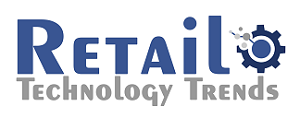Importance of data security in school management software
In today’s digital landscape, schools rely heavily on management software to streamline operations and enhance educational processes. School management software serves as a central hub for various administrative and educational functions. Data stored and processed by these systems includes:
- Student personal information
- Academic records and grades
- Attendance records
- Financial data
- Health information
- Staff and faculty details
- Communication logs
Given the sensitive nature of this information, ensuring its security is paramount. Individuals and institutions can suffer severe consequences from unauthorized access.
Key components of data security in school management software
Encryption – Protecting data in transit and at rest
Encryption is a fundamental aspect of data security. It involves encoding information so that only authorized parties can access it. School management software should employ strong encryption algorithms to protect data both when it’s being transmitted and when it’s stored on servers.
Access control and authentication – Ensuring authorized use
Implementing strict access controls is essential to prevent unauthorized users from viewing or modifying sensitive information. This includes:
- Strong password policies
- Multi-factor authentication
- Role-based access control
- Regular access audits
- Data backup and recovery – Safeguarding against loss
Regular data backups are crucial to protect against data loss due to system failures, human error, or cyberattacks. School Management Software should include automated backup features and robust recovery protocols to ensure data continuity.
Regular security updates and patch management
Malicious actors can exploit software vulnerabilities to gain unauthorized access. Patch management and timely security updates are crucial for addressing these vulnerabilities.
Compliance with data protection regulations
Educational institutions must adhere to various data protection regulations, such as FERPA in the United States or GDPR in Europe. School management software should be designed with these compliance requirements in mind, incorporating features that facilitate adherence to legal standards.
Benefits of prioritizing Data security in school management software
Enhanced trust and confidence
When schools demonstrate a commitment to protecting sensitive information, it builds trust among students, parents, and staff. This trust is essential for maintaining positive relationships and attracting new enrollments.
Improved operational efficiency
Secure systems allow staff to work with confidence, knowing that the data they handle is protected. This can lead to increased productivity and more efficient administrative processes.
Better decision-making
With secure and reliable data at their fingertips, school administrators can make more informed decisions about resource allocation, curriculum development, and student support.
Long-term cost savings
While implementing strong security measures may require initial investment, it can lead to significant cost savings in the long run by preventing data breaches and their associated financial and reputational damages.
Software data security best practices
To overcome these challenges and maximize data protection, schools should consider the following best practices:
- Conduct regular security audits and risk assessments
- Implement a clear incident response plan
- Choose school management software vendors with a strong track record in data security
- Regularly review and update security policies and procedures
Data security is an essential aspect of school management software that cannot be overlooked. With efficient digital management systems, educational institutions can safeguard their students, staff, and reputation while protecting sensitive information. As technology continues to evolve, staying vigilant and adapting to new security challenges will be crucial for maintaining the integrity and trustworthiness of school management software.















